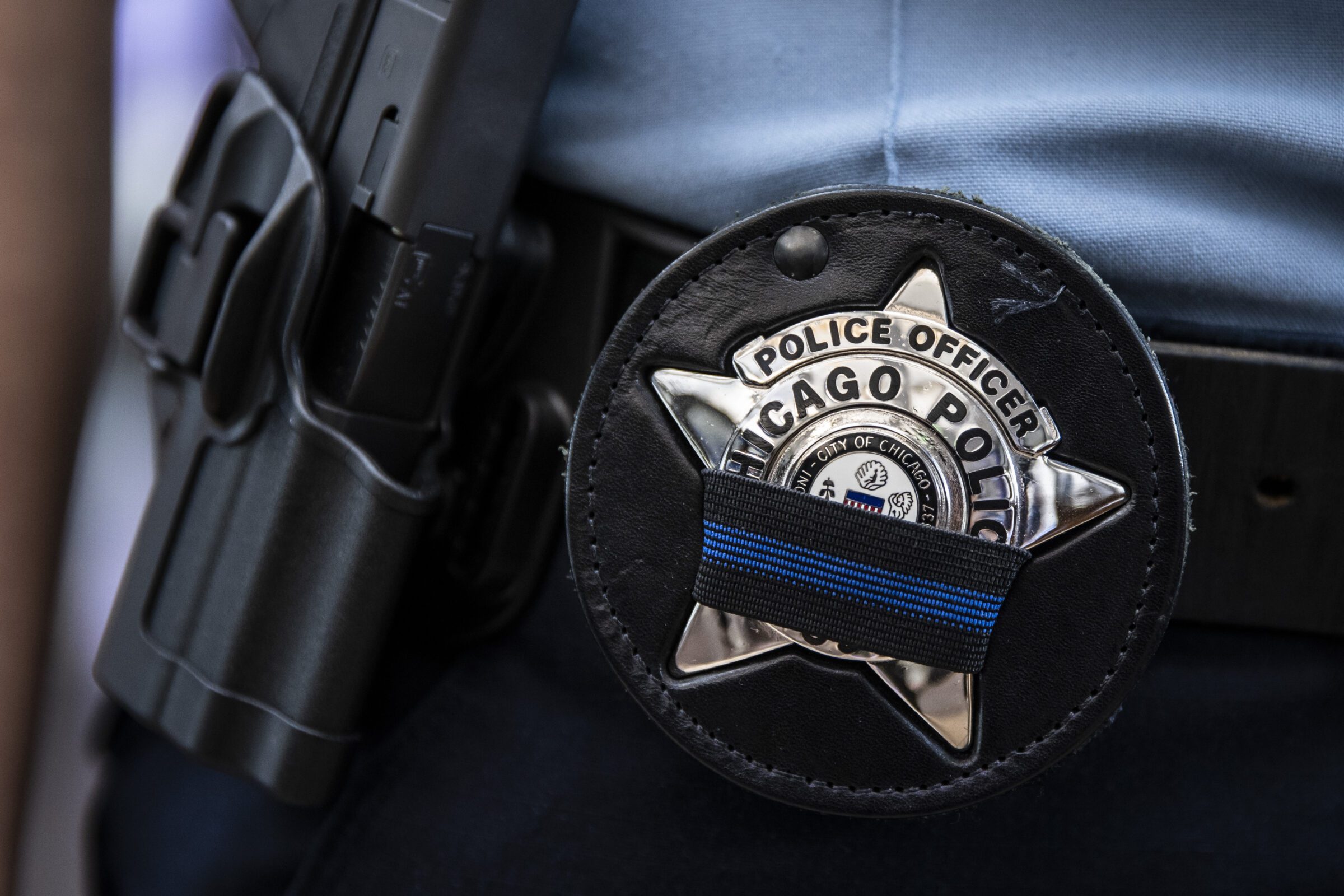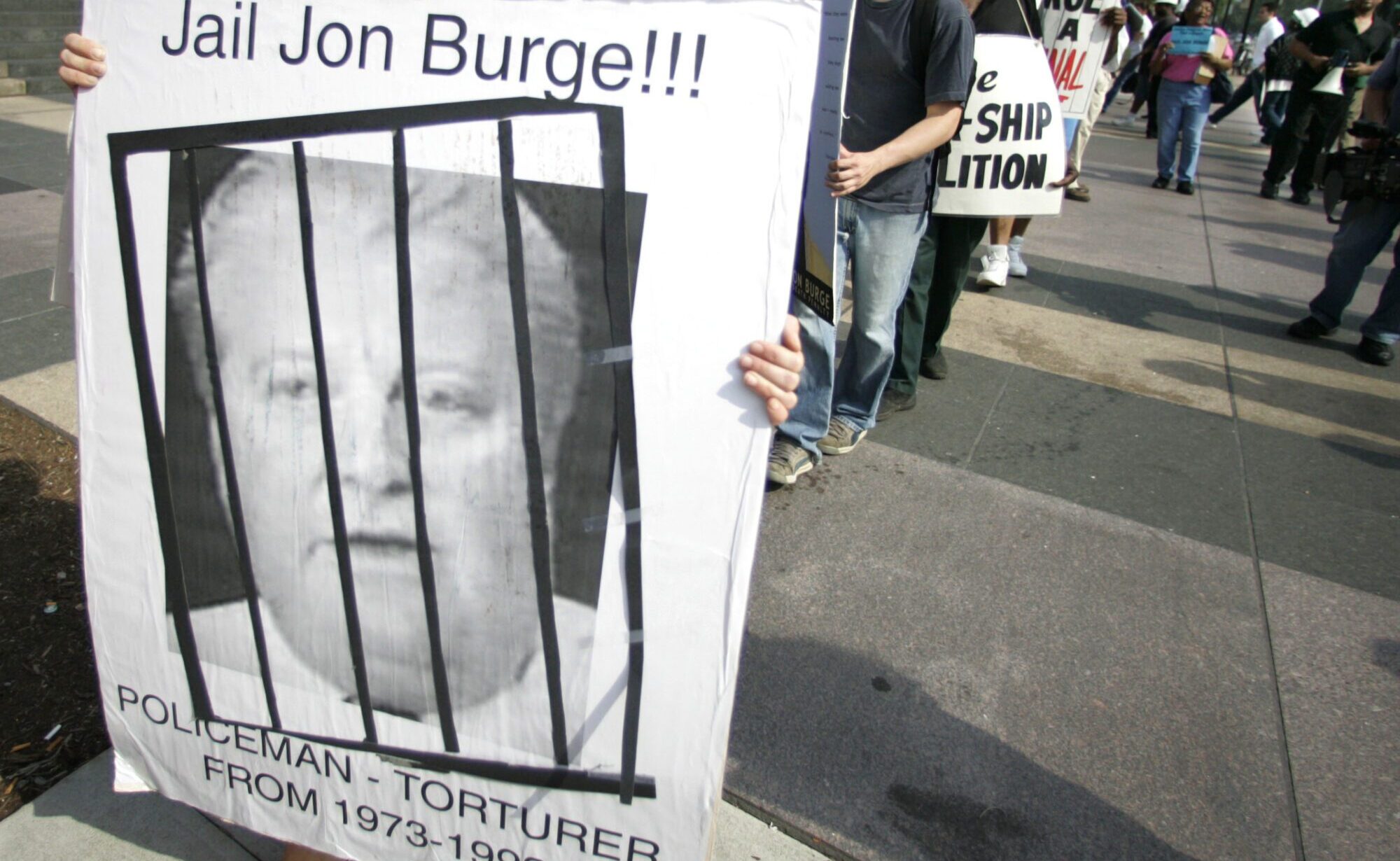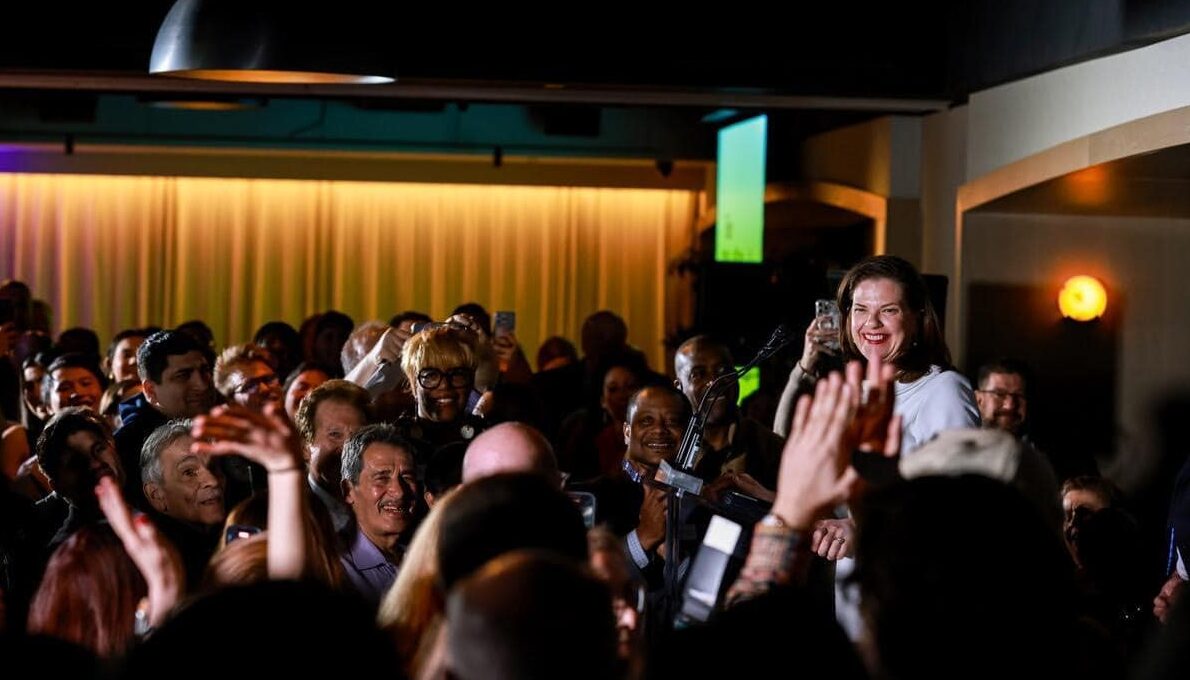Exonerations Grind to a Halt Under Chicago’s New Prosecutor
Cook County State’s Attorney Eileen O’Neill Burke has weakened her office’s already broken system for freeing the innocent, even as allegations of coercion mount against a former Chicago detective.
| September 30, 2025

This story is a collaboration between Bolts and Injustice Watch, a Chicago-based nonprofit journalism organization examining issues of equity and justice in the court system.
Renwick Wells and Mickey Mason say Chicago police detectives bullied witnesses into falsely blaming them for murder.
Claims of police abuse are all too common in the Cook County courts. But Wells and Mason have an uncommon piece of evidence from an unusual source: a 77-page report commissioned by prosecutors themselves, citing more than a dozen cases where witnesses or defendants allege that one of those detectives, Brian Forberg, or his partners did the same thing to them.
Snowballing claims of coercion by specific Chicago detectives have historically signaled wrongful convictions waiting to be revealed. Cook County State’s Attorney Eileen O’Neill Burke, however, has shown no sign she plans to act on the bracing report ordered up by her predecessor, Kim Foxx. Instead, Burke — 10 months into her first term — has continued to handle cases involving Forberg one by one in court, rather than systematically investigating their glaring similarities.
Defense lawyers and family members of imprisoned men argue Burke owes them a more in-depth review or an independent investigation, given the close ties between the accused detectives and the state’s attorney’s office. Forberg’s late wife was a prosecutor in the office’s unit tasked with evaluating innocence claims. And John Foster, a sometimes-partner of Forberg’s who is now a commander of detectives, is also married to a former assistant state’s attorney.
Thelma Reed, Mason’s cousin, said she believes he will eventually be exonerated and freed from prison. But she doesn’t think prosecutors are taking his innocence claim seriously.
“They’re not interested,” she said. “I think he’s a number. He’s a statistic at this point. And he’s not looked at as an individual person or somebody’s loved one or family.”
Burke’s approach to the Forberg cases is emblematic of the ways her office has weakened the already broken system for freeing the innocent in Cook County, which leads the nation in known wrongful convictions.
The office’s main vehicle for righting wrongful convictions is the Conviction Integrity Unit, also known as the CIU, a group of prosecutors who are supposed to honestly appraise their colleagues’ work. Earlier this year, an Injustice Watch investigation found the group has a mixed record. While the Foxx administration credited it with clearing more people than any similar group nationwide, the majority of those had relatively minor drug convictions linked to a police officer who went to prison for corruption. At the same time, the CIU had overlooked at least 21 people who were later exonerated of murder.
Nearly a year in, Burke has made the unit even less likely to address prosecutors’ past mistakes. She has not replaced several staffers who left at the end of Foxx’s term, with the team of attorneys now half the size it once was. And while experts say a group reviewing convictions needs lawyers with defense experience, the CIU has gone from few to none. Burke has also tightened rules to exclude more people from raising their innocence claims to prosecutors.
The result? The unit has not exonerated anyone in a year.
“Given the history of the criminal legal system in Chicago, that’s a serious disappointment,” said Barry Scheck, co-founder of the national Innocence Project and an advocate for conviction integrity units. “Does anybody seriously believe that the police force and the district attorney’s office have improved so incredibly, so markedly, that the system is virtually running perfectly? It makes no sense.”
Subscribe to our newsletter
For more reporting on police and prosecutors
Burke has also removed protections that civil rights advocates say could prevent wrongful convictions. She has allowed police to charge some gun crimes without review by a prosecutor, and she has pared back her office’s lists of police with serious credibility issues.
Burke’s approach to innocence claims has not come as a surprise to either her supporters or critics. She ran a tough-on-crime campaign, was endorsed by the Chicago Fraternal Order of Police, and gave few details during the race about her plans to address wrongful convictions — even after reporting revealed she had prosecuted a boy for murder who was later exonerated. She told reporters at the time her views on juvenile justice had “evolved.”
Daniel Kirk, a Burke supporter who was second-in-command to former State’s Attorney Anita Alvarez, said he’s been happy with the new state’s attorney’s approach to case review.
“I haven’t seen anything that would strike me as a reluctance or stubbornness to do the right thing on these cases,” he said.
Burke has declined Injustice Watch interview requests since the month before she took office. Her office has continued to deny Injustice Watch complete records of the CIU’s actions, first requested under Foxx. The organization is suing for that data.
Burke declined to answer detailed questions for this story, but sent a statement saying she needs to ensure the conviction review process is “consistent, fair, and available to all defendants.”
“While this approach will look different than my predecessor’s, it will ultimately serve the interests of justice by bringing greater consistency and regulation to the process,” she wrote.
Burke addressed the issue publicly in January at the Union League Club of Chicago, when she pledged to review the work of potentially abusive police.
“You are always going to have a bad apple,” she said. “Those cases need to be evaluated to see, was this a legitimate conviction?”
Scandal builds around detectives
Until six years ago, Forberg attracted little attention beyond news clips reporting that he was one of the department’s top recipients of overtime — he took home nearly $138,000 in overtime pay in 2015, more than any other officer.
Then, in 2019, the Illinois appellate court put a spotlight on him when a ruling against Kevin Jackson — imprisoned for a 2001 murder — included a dissent from Illinois Appellate Court Judge Mary L. Mikva saying the case had “all the hallmarks” of a wrongful conviction. Mikva noted other allegations of coercion by Forberg and Foster.
After that, Jackson’s attorneys started hearing similar claims from other lawyers, people in prison, and their loved ones. In 2020, Injustice Watch reported on the case of Rico Clark, who said in court records that Forberg and another partner had coerced witnesses into framing him for a 2006 murder.
In the following years, activists led by Jasmine Smith, a childhood friend of Clark’s, would show up at the Cook County criminal courthouse and public events protesting for the release of men who said Forberg railroaded them.
In 2022, Jackson’s lawyers publicized Forberg’s marriage to Kirsten Ann Olson, a former prosecutor in the CIU, which had denied Jackson twice. Foxx responded to the potential conflict by hiring attorneys Thomas Geraghty and Robert Owen as special assistant state’s attorneys to look into Jackson’s case. Foxx declined to comment for this story.
Her appointment of the two men was unusual. Special prosecutors are often veterans of state or federal prosecutors’ offices, appointed by judges to make court appearances and file motions in cases where the office has a conflict. But Geraghty and Owen are longtime defense lawyers affiliated with Northwestern University’s law school, a frequent foe of prosecutors in innocence claims. And rather than appearing in court, they wrote a wide-ranging report criticizing police and prosecutors for their handling of the case and concluding there was “an unacceptably high likelihood” that the witness statements were coerced.
The appellate court threw out the conviction, and Jackson went free in late 2024.
But Geraghty and Owen didn’t stop at Jackson’s case.
They cited 13 other cases in which Forberg and detectives working with him, including Foster, were alleged to have used a wide repertoire of pressure tactics. Witnesses said the detectives threatened to keep them from their kids or charge them with crimes, or simply told them who to blame.
A particularly jarring allegation in the report comes from Derrick Hatchett, whose 2004 murder confession was thrown out by a judge after Hatchett alleged officers beat him, breaking his hand and splitting his lip, before he claims Forberg and another officer told him to expect more of the same if he didn’t crack.

The report detailed another case in which a witness alleged Forberg pressured her during the course of more than 40 hours in detention into identifying a murder suspect, who was later cleared when an autopsy determined the victim likely took his own life. Forberg was also one of eight officers accused in a lawsuit of taking false witness statements against a man who spent eight years in prison before he was exonerated by DNA evidence in 2010. Lawyers for the officers denied the allegations. That man won a $3.4 million settlement.
Geraghty and Owen included the caveat that none of the allegations amounted to a formal court finding of wrongdoing by Forberg or others. But they included them in their report because they “strikingly resemble” the claims in Jackson’s case.
The report also noted that the witnesses and defendant in Jackson’s case were Black, making it “particularly relevant” that Foster, Forberg’s partner in the case, was dismissed from the Drug Enforcement Administration academy in 1998 while on leave from the Chicago Police Department after yelling a racial slur during a class session. When he returned to the department, internal affairs investigators sustained the allegations and recommended a 30-day suspension.
Presented with the report, prosecutors under Foxx opted not to retry Jackson but kept fighting other cases cited in it. Under Burke, prosecutors have continued to defend convictions tied to Forberg and denied allegations of a pattern of abuse.
‘All these people ain’t making this stuff up!’
As wide-ranging as the report was, it didn’t detail the whole universe of allegations against Forberg and his partners.
An Injustice Watch review of thousands of pages of appeals court rulings, police reports, and news stories found 10 more cases involving Forberg that included an allegation of some form of coercion, for a total of 24. The allegations largely mirror those in the prosecutor’s office report in saying that detectives threatened, pressured, or told witnesses who to blame.
The cases may not account for every complaint, as it is virtually impossible to search every mention of a few specific detectives over three decades of court records.
The defendants in all 24 cases are Black. Eighteen remain in prison.
Two of the men who weren’t in the report prosecutors commissioned are Wells and Mason, who were convicted of killing 19-year-old Terry Morris in a car after he’d been selling marijuana in the West Englewood neighborhood on Chicago’s South Side in December 2003.
The case was open for five years before Foster reported that a key witness identified Wells and Mason and others corroborated him. At trial, another man who was in the car during the shooting placed Mason at the scene but said he wasn’t a shooter, and he said he didn’t see Wells at all. All three witnesses who allegedly identified the men as the shooters recanted at trial and gave confounding testimony — one said he didn’t remember speaking with authorities and another denied even testifying at the grand jury.
Former Cook County Associate Judge Marcus R. Salone found Mason and Wells guilty. Appeals judges later found the original witness accounts persuasive enough to sustain the convictions.
Salone handed both men 45-year sentences, and they stand to be in prison until 2053.

Now, lawyers for the men have filed petitions seeking freedom based on the claim that Forberg and Foster pressured witnesses in ways that mirror other cases. One of the witnesses who spoke with detectives just after the shooting testified at trial that she lied to escape a drug charge and because police paid her. Another witness said in an affidavit that he went along with the story police wanted because they arrested him for having a gun and said he’d go free if he cooperated. The third witness wrote in an affidavit that he lied after police threatened to charge him with the murder.
It is difficult to tell from court records which detectives questioned which witnesses, but Foster is listed as the primary detective on police reports and testified that he questioned witnesses, while Forberg is named in several reports as helping with the investigation.
Prosecutors have yet to respond to the court filings. Burke declined to comment on pending cases.
Family members and attorneys for Wells and Mason hope prosecutors or the courts will be swayed by the similarities between their cases and those in the report prosecutors commissioned.
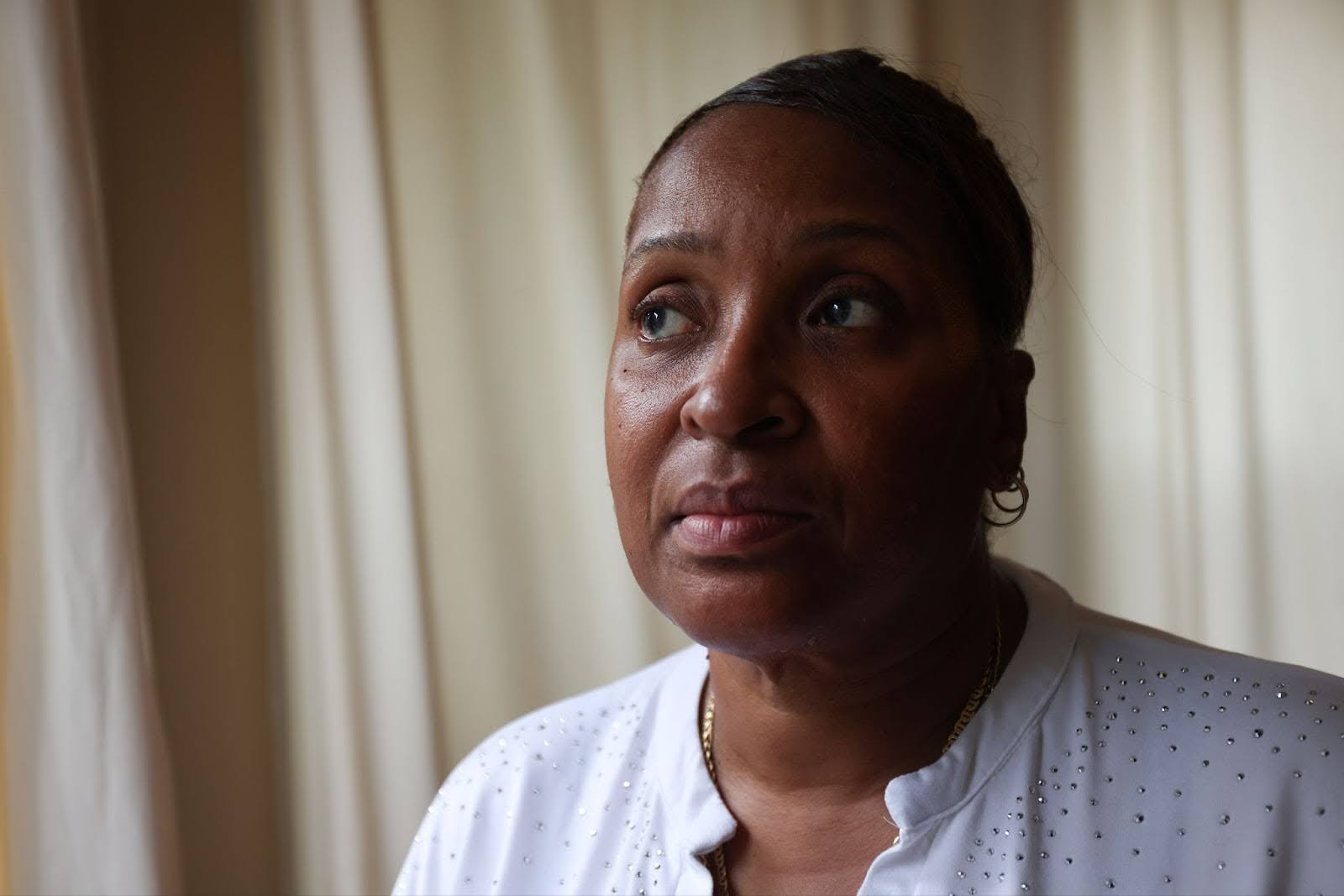
“All these people ain’t making this stuff up!” said Gwendolyn Wells, Renwick’s mother. “There has to be some truth to it. You’re taking all these different people from different areas — all of them are not making this up.”
Defense lawyers and advocates gave various opinions about how Burke should handle the spate of allegations against Forberg and his partners, ranging from a more thorough review to handling of the cases by an outside official such as Illinois Attorney General Kwame Raoul. His office previously declined to take over one Forberg-related case, and he declined a request for an interview.
As the controversy around Forberg has built, he has quietly remained in law enforcement. He retired from the Chicago Police Department in late 2023, but within months was rehired by the department as a criminal intelligence research specialist. A spokesperson for CPD did not answer questions about his return to the department, but Forberg described his duties in public records as “analyze case/incident patterns/work cold fugitive cases.”
The Chicago Office of Public Safety Administration heavily redacted Forberg’s application for the job, including his disciplinary history and references. Injustice Watch is suing the agency for that information.
Forberg was also hired in March as a part-time detective in Merrionette Park, a tiny village bordering Chicago’s South Side. After an Injustice Watch reporter requested public records and asked questions of Police Chief Mathew Ramirez, Forberg resigned in early May, records show. Ramirez declined Injustice Watch’s request for an interview.
Forberg’s cases are likely to continue to haunt the courts. Freeing the wrongfully convicted is both a civil rights crusade and a business in Chicago, where exonerations give way to lawsuits that can reap tens of millions of dollars for people robbed of years or decades of their lives, as well as their lawyers. In late September, Jackson filed a federal lawsuit against Forberg and Foster, as well as the CIU prosecutors who denied his innocence claim.
In recent months, an informal group of criminal defense and civil lawyers has been reviewing other prosecutions involving Forberg.
Neither Forberg nor Foster could be reached for comment. A police department spokesperson declined to make either man or Superintendent Larry Snelling available for an interview.
Foster remains a commander of detectives on the Northwest Side, but the department faces increasing pressure to remove him. Spurred by activists, at least one police district council has taken a symbolic “no confidence” vote on Foster’s leadership. Those activists in July flooded a public meeting on an unrelated topic featuring Foster, and he sat by as a line of speakers came to the microphone to condemn him.
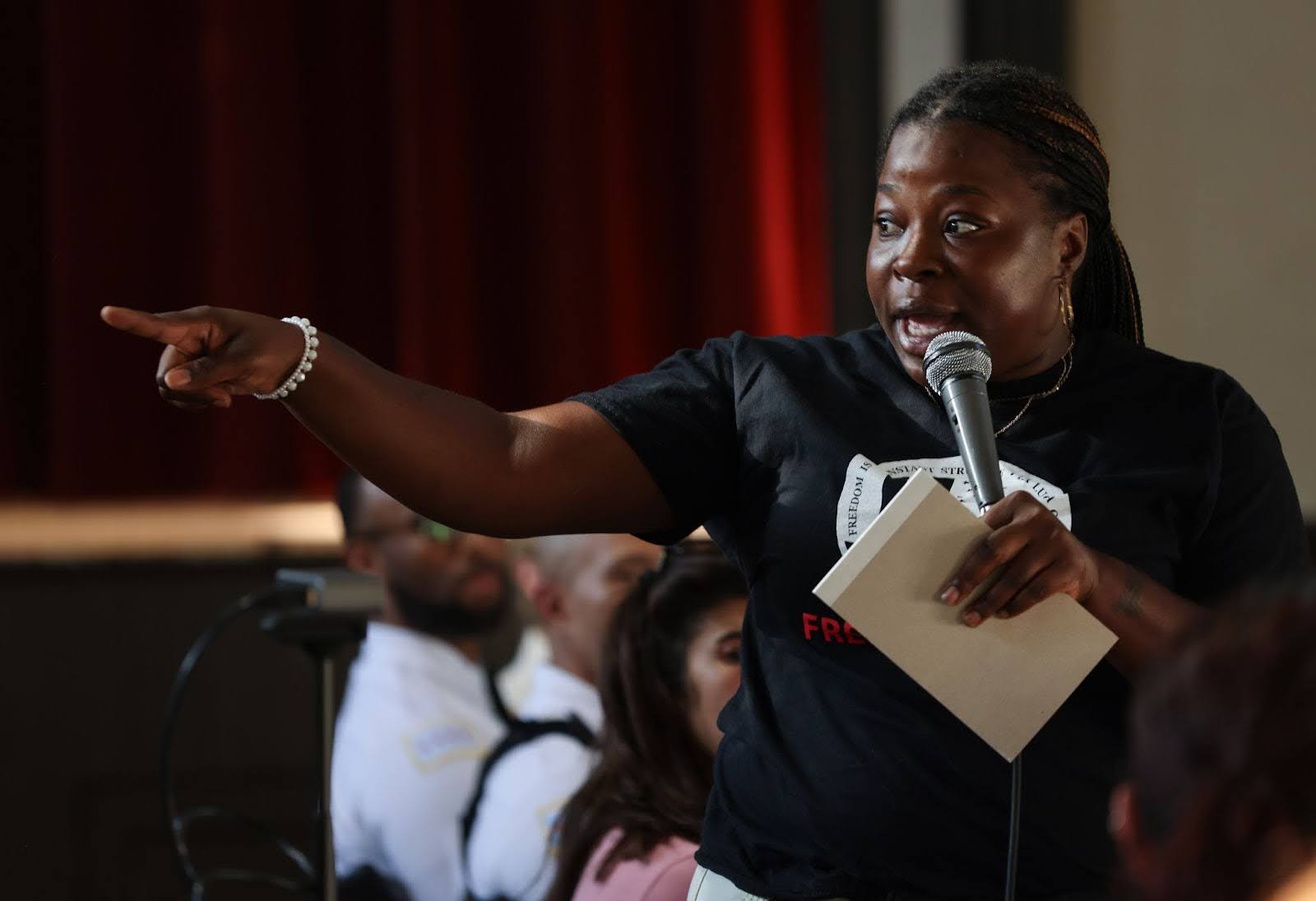
Smith, the activist who has been at the forefront of protests over Forberg and his partners, pointed at Jackson in the crowd at the Kosciuszko Park fieldhouse and asked Foster, “Do you remember that man, right across from you?”
“He did 23 years and four months in (prison) for a crime that he did not commit, by the hands of this commander and his partners,” she said. “And that ain’t right.”
Weakening conviction review
As Burke has taken a business-as-usual approach to the gathering storm of Forberg cases, she has also weakened her office’s already broken system for reviewing the universe of innocence claims and allegations of wrongdoing and error by other officers.
Anita Alvarez founded the CIU in 2012 as part of a national trend inspired by waves of wrongful convictions, which are frequently overlooked by appeals courts more focused on procedural soundness than evidence of innocence. But prosecutors reviewing their own colleagues’ work has proven an awkward solution, nationally and in Cook County.
Injustice Watch’s investigation in February found the CIU routinely denied people with strong innocence claims. While the group cleared 248 people under Foxx — more than any group nationwide — 226 of them were convicted of relatively minor crimes tied to the same former sergeant, Ronald Watts, who went to prison after leading a team found to have planted drugs and extorted people for years.
Burke took over the office, promising stability in the CIU, saying in January, “Nothing has changed. We are continuing our Conviction Integrity Unit.”
Things did, in fact, change.
Exonerations have gone from infrequent to nonexistent. Exonerations by the CIU went from a high of 113 in 2022 — mostly related to the same police corruption scandal — to three in 2023, and one in 2024, according to figures released at the end of Foxx’s term. The last exoneration, under Foxx in September 2024, was relatively minor — a man cleared of a felony drug possession case built by another officer who went to federal prison for leading a robbery ring.
Staff attrition that began under Foxx has deepened. The state’s attorney’s office provided incomplete and contradictory records on CIU staffing, but Injustice Watch pieced together documents to show that, as of late 2021, the unit had six attorneys and a DNA specialist. Near the end of Foxx’s term, it had at least four lawyers and a DNA specialist, their records show. Now it has three lawyers.
By comparison, the well-regarded conviction integrity unit in Brooklyn had eight lawyers as of September, a spokesperson said. The group in the Manhattan district attorney’s office, as of this summer, had five lawyers and two vacancies, along with more than a half-dozen other staffers, a spokesperson said. Both those groups are in prosecutor’s offices smaller than Cook County’s.
Jon Loevy, whose civil rights firm routinely wins multimillion-dollar verdicts for exonerated men, suggested that the CIU might be accomplishing what prosecutors want from it.
“That is a tremendously under-resourced project if your goal is to make sure that innocent people aren’t in prison,” he said. “If it’s to slow-walk investigations, then it’s perfect.”
(Disclosure: Loevy’s firm represents Injustice Watch in open records lawsuits, including against the state’s attorney’s office.)
Continuing another longstanding problem of the group, all three of its attorneys — including its director, Iris Ferosie — are career Cook County prosecutors. Experts recommend conviction review units include people with defense experience, to limit bias and gain perspective from a defendant’s side. While that has always been in short supply in Cook County, under Foxx, the group for two years was led by a former defense lawyer, and a handful of other attorneys had experience outside the office.
Burke has also solidified and expanded a rule forcing people to choose between reviews by the CIU and pressing their case in court. That guideline was frequently invoked under Foxx, but there were high-profile exceptions — including Jackson’s case — allowed to proceed on both tracks.
A rule change was recommended by Burke’s transition team, whose subcommittee on the CIU was co-chaired by former Chicago Mayor Lori Lightfoot, an outspoken critic of Foxx’s handling of wrongful convictions. A report from the transition team called for Burke to “clarify” the rule, and the CIU’s website now says it won’t consider cases during federal or state challenges, “or any litigation of any kind.” Lightfoot declined to comment through a spokesperson.
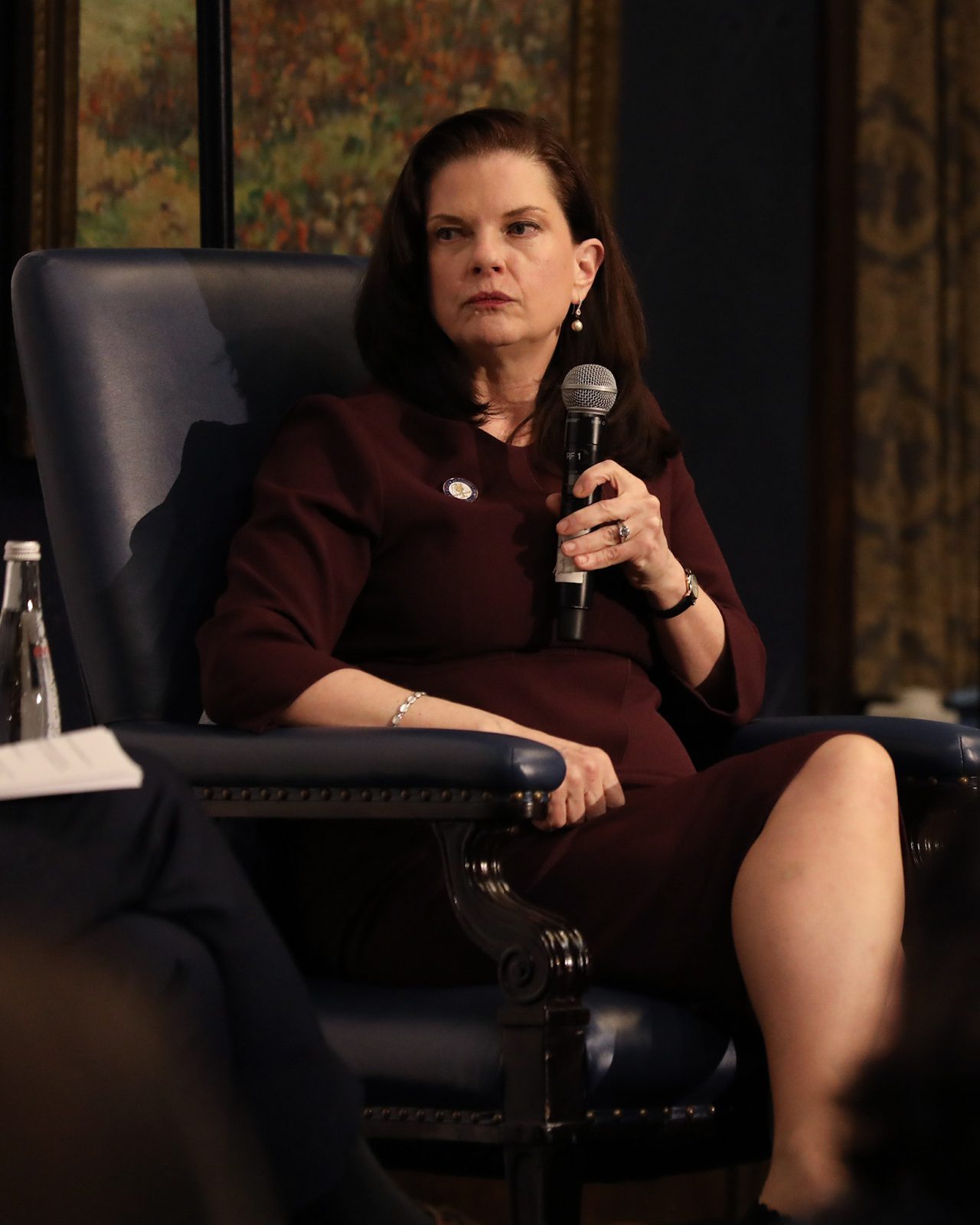
It remains to be seen how Burke’s prosecutors will apply the rule, but experts said it could discourage people from making innocence claims to prosecutors and prevent prosecutors who see a strong innocence claim in court from referring it to the CIU. Defense lawyers said it’s another reason not to use the CIU.
“It’s a black box that’s just, ‘Trust us, we’re going to look at the case,’” said Karl Leonard, an attorney with the Exoneration Project. “And then what will almost invariably happen is they will decline to do anything and make sure that the judge you end up in front of knows that they declined to do anything.”
For the prior eight years, righting wrongful convictions was a frequently stated priority of the Foxx administration — even when reality didn’t always match the promise. Things appear to have changed.
“It’s like anything else in a prosecutor’s office. Elections have consequences, and office priorities have consequences,” said Brandon Garrett, a Duke University law professor who has studied CIUs.
Asked how Cook County can fix its system for determining whether the people it has imprisoned are innocent, one solution experts and defense lawyers suggested is simple: a CIU, but better. That would involve adding staff, including those with outside perspectives.
Others advocate for “sentinel event reviews” — examinations of wrongful convictions that mirror the kind of painstaking investigations following an airline crash. The idea is to take a “non-blaming” approach to understanding what happened and fix the underlying problems, said John Hollway, senior advisor at the Quattrone Center for the Fair Administration of Justice at the University of Pennsylvania law school. Hollway advises law enforcement agencies through these reviews.
“We’ve been saying for a long time that we think that the next sort of CIU 2.0 is that a CIU is actually the leader of, the implementer of best practices and education about best practices, and the driver for that is learning from the errors of the cases that they’re reviewing,” he said.
Garrett, the Duke University professor, noted another possibility would be an independent system set up outside prosecutors’ offices. That’s been done in North Carolina, though he said its statewide innocence inquiry commission has not lived up to its potential because of a lack of resources and “reluctance to be proactive” in investigating cases.
“If it was an independent commission that was really well funded and had lots of power, then maybe it could be really effective,” Garrett said.
In a system that has allowed thousands of wrongful convictions, prosecutors need to remain curious about their potential mistakes, said Ronald Safer, a former federal prosecutor who has represented people claiming innocence but has no ties to the Forberg cases.
“The prosecutor’s office is there to do justice,” he said. ”And, my goodness, if you have reason to believe that your office was used by rogue police officers to convict the innocent, why wouldn’t you investigate?”
Dan Hinkel is a senior reporter at Injustice Watch, where he reports on courts and the legal system.
Sign up and stay up-to-date
Support us
Bolts is a non-profit newsroom that relies on donations, and it takes resources to produce this work. If you appreciate our value, become a monthly donor or make a contribution.


